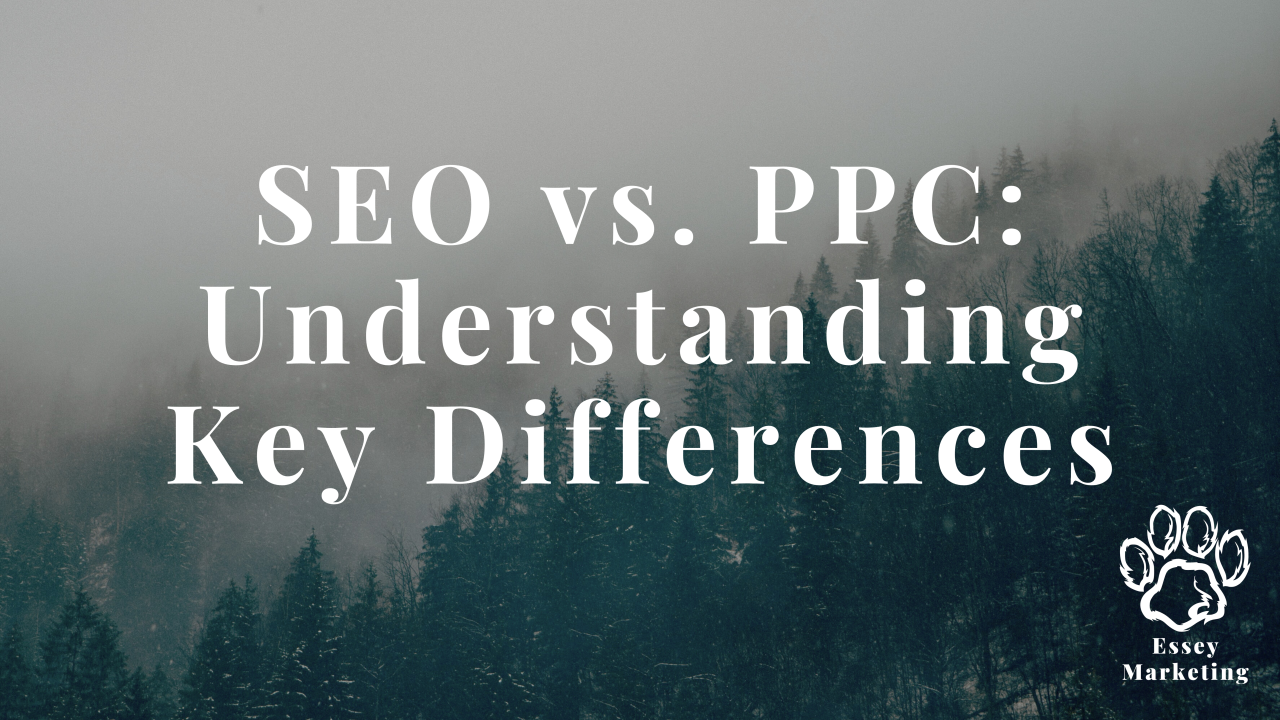
SEO vs. PPC: Understanding Key Differences
Chris Essey
Fortune 100 Digital Marketer | Business Owner | Integrated Marketing Consultant | Academic Mentor | Lifelong Learner
Imagine you're hosting a party. SEO is the quiet, charming guest who patiently builds relationships and slowly attracts a crowd. PPC, on the other hand, is the flashy, attention-seeking friend who pays for a prime spot on the dance floor. Both have their merits, but which one is right for your digital party? In this newsletter, we break down the key differences between SEO and PPC, helping you choose the best strategy for your business goals.
What is search engine optimization (SEO)?
Search engine optimization is the process of optimizing a website to improve its visibility and ranking in search engine results pages (SERPs) like Google. The goal of SEO is to increase organic traffic to a website by ensuring that it appears higher in search results for relevant keywords.
SEO involves a combination of technical, on-page, and off-page factors. Technical SEO focuses on optimizing the website's technical aspects, such as website speed, mobile-friendliness, and proper indexing. On-page SEO involves optimizing the content and elements on each page of the website, including keyword usage, meta tags, and header tags. Off-page SEO focuses on building external links to the website from other reputable websites, known as backlinks.
Effective SEO requires a comprehensive approach that addresses all three aspects. By optimizing the website for both search engines and users, SEO can help a business increase its online visibility, attract more qualified traffic, and ultimately drive more conversions.
Benefits of SEO
Drawbacks of SEO
What is pay-per-click (PPC)?
Pay-per-click is an online advertising model where advertisers pay a fee each time their ad is clicked on. This allows them to target specific keywords and reach potential customers who are actively searching for their products or services.
When a user searches for a particular keyword, PPC ads related to that keyword appear at the top or bottom of the search results page. The advertiser only pays when a user clicks on their ad, which means they're only paying for actual engagement.
The cost of PPC varies depending on the competition for the keywords being targeted. More competitive keywords will have higher costs per click. To optimize their PPC campaigns, advertisers use various strategies such as:
PPC is a powerful tool for businesses of all sizes to reach their target audience and drive sales. By effectively managing their PPC campaigns, advertisers can maximize their return on investment and achieve their marketing goals.
Benefits of PPC
领英推荐
Drawbacks of PPC
What’s best for my business? SEO or PPC
When comparing SEO and PPC, it’s crucial to understand their differences.
SEO is a long-term strategy, often taking time for your content to rank high on search engine results pages. However, once optimized, your content can achieve and maintain top positions, enhancing your website’s credibility since it won’t have an “Ad” label. Despite being time-intensive, SEO can drive exponential traffic growth.
In contrast, PPC ads deliver quicker results. You can appear at the top of the page almost immediately if you’re willing to invest. This approach, however, might not be feasible for small businesses with limited marketing budgets.
Ultimately, neither is inherently superior; it depends on your company’s needs. For a sustainable, long-term approach, SEO is ideal. If rapid visibility is your goal, PPC might be the way to go. Remember, your digital marketing strategy can effectively combine both methods.
SEO and PPC: Working Together
While PPC and SEO are often seen as competing strategies, they can actually complement each other effectively. By combining these two approaches, businesses can maximize their online visibility, attract more qualified traffic, and achieve their marketing goals.
PPC, or pay-per-click advertising, allows businesses to bid on specific keywords and display their ads at the top of search engine results pages. This can be a great way to quickly generate traffic and drive conversions, especially for new products or services. However, PPC can be expensive, and it's essential to have a well-optimized campaign to ensure a positive ROI.
SEO, or search engine optimization, involves optimizing a website's content and structure to improve its organic search engine rankings. While SEO takes time and effort, it can provide long-term benefits by attracting consistent, high-quality traffic. By focusing on relevant keywords and creating valuable content, businesses can establish themselves as industry experts and build trust with their audience.
To effectively use PPC and SEO together, businesses should consider the following strategies:
By combining PPC and SEO, businesses can create a more comprehensive and effective online marketing strategy. While PPC can provide immediate results, SEO can help build a sustainable online presence. By working together, these two approaches can help businesses achieve their marketing goals and drive long-term growth.
I agree understanding the key differences between these two strategies is important for businesses to make informed decisions about their digital marketing efforts. - SEO offers increased visibility and long-term benefits. - PPC drives immediate traffic with controlled spending. - Combining both can enhance overall digital strategy. - Data insights from PPC can inform SEO tactics. Mastering both SEO and PPC can elevate your marketing efforts, ensuring a balanced approach to reach your business goals.